UTCP Seminar Series "Thomas Metzinger with Stephan Schleim"
From the 21st to the 29th of February we had a series of seminars with the participation of Thomas Metzinger (University of Mainz) and Stephan Schleim (University of Bonn), where we were able to discuss a variety of problems in neuroethics. Below is their brief report.
The seminars were held on February 21, 22, 23, 27, 28, and 29. Dr. Metzinger is Professor of Philosophy at the University of Mainz in Germany, and he specializes in neurophilosophy. Mr. Schleim is a PhD student and research associate at the University of Bonn in Germany, and he is currently working on two PhD dissertations in Philosophy and Neuroscience. Furthermore, Mr. Schleim is the author of a book on mind-reading published in Germany. The aim of the seminar series was to examine various problems in neuroethics with them.
On the first day, Prof. Metzinger gave us an introductory talk on neuroethics and an overview of the field. In explaining neuroethics, Prof. Metzinger proposed a distinction between descriptive neuroethics and normative neuroethics instead of a popular distinction between the ethics of neuroscience and the neuroscience of ethics. Furthermore, Prof. Metzinger argued for the importance of anthropological examinations of neuroscience by differentiating between descriptive neuroanthropology and normative neuroanthropology.

In the second and third seminars, Mr. Schleim gave two talks. The first one is on the neuroscience of normative decisions, and the second one is on mind-reading. As someone who knows neuroscience and philosophy, Mr. Schleim showed us the current neuroscientific studies of normative decisions and of mind-reading, and his philosophical analyses of them. As to the former, Mr. Schleim argued that the neuroscientific studies of normative decisions are still preliminary, and philosophers can clarify methodological problems of neuroscience. As to the latter, Mr. Schleim explained that although neuroscientific technologies such as lie detection have many problems, and thus they are not necessarily promising, we need to pay attention to the abuse of neuroscientific studies. In this regard, neuroethics can and should contribute to a better neuroscientific literacy.
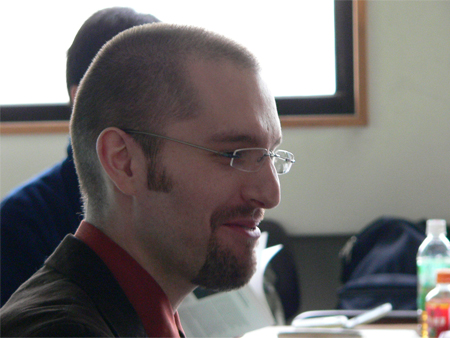
On the fourth day, Prof. Metzinger examined how neuroscience changes the image of man. According to him, the brain evolved in the process of natural evolution, and there is a continuity between us and other animals. In Prof. Metzinger’s view, although these facts should not be glorified, they raise a question of whether philosophical anthropology is really interesting. Prof. Metzinger contended that neuroscience poses a serious challenge to the received views of human beings, but some find it emotionally unattractive or even threatening. Thus they argue that neuroscience is an ideology. Prof. Metzinger criticized such a view in that it is based on a mistaken confusion between the descriptive and the normative levels. In his view, we need to carefully distinguish between description and normativity.
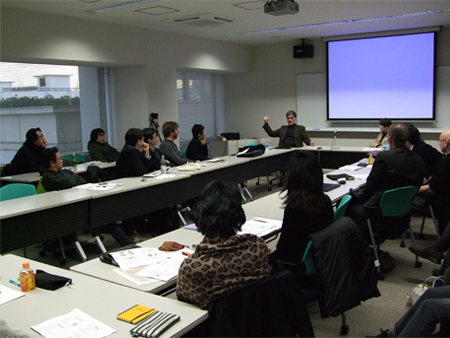
We had a conference on the fifth day. In the conference, three UTCP fellows examined various philosophical problems of neuroscience. In his talk, Jun’ichi Kushita examined how the recent development of neuroscience can change our view of pleasure. Kei Yoshida gave a talk on the neuroeconomics of altruistic behavior [Download PDF (2.69MB)]. Toshihiro Suzuki scrutinized the relation between neuroscience and philosophy of expertise. Then Prof. Metzinger discussed the relation between value and neuroethics, referring to and commenting on the above presentations.
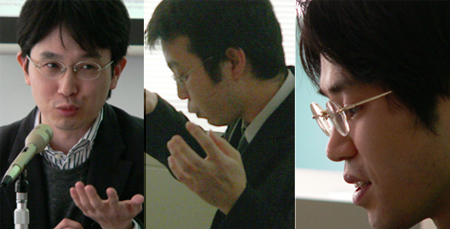
Mr. Schleim, a UTCP fellow, and a Japanese student made presentations on the last day. Taichi Isobe (Research student, University of Tokyo) examined the prospect of neuroethics in Japan by comparing bioethics in Japan and the United States and argued that Japanese need to propose their own neuroethics. Then based on his joint work with Masayoshi Someya, Mineki Oguchi scrutinized the relation between the recent development of mind-reading technology and the privacy problem. Mr. Schleim gave a talk on his neuroscientific studies of normative decisions. In his final talk, Prof. Metzinger explained the current state of neuroethics in Germany. According to him, although many people are interested in neuroethics, its future is not necessarily promising--given that the current academic, cultural, and social situations in Germany. Yet, at the same time, he stressed the importance of neuroethics. His point was that we need to be realistic to develop neuroethics further.
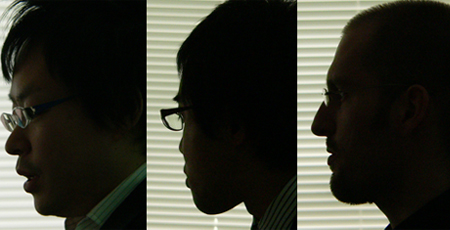
In general, we had lively discussions in the seminars. In my view, the seminars were successful in that they could promote fruitful discussions on neuroethics between German and Japanese scholars. In this regard, they differ from ordinary speaker series where we are just listening to what famous scholars say. I hope that we can continue discussing and examining problems in neuroethics.
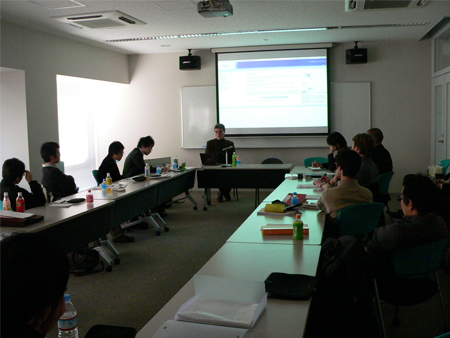
(Reported by Kei Yoshida)






